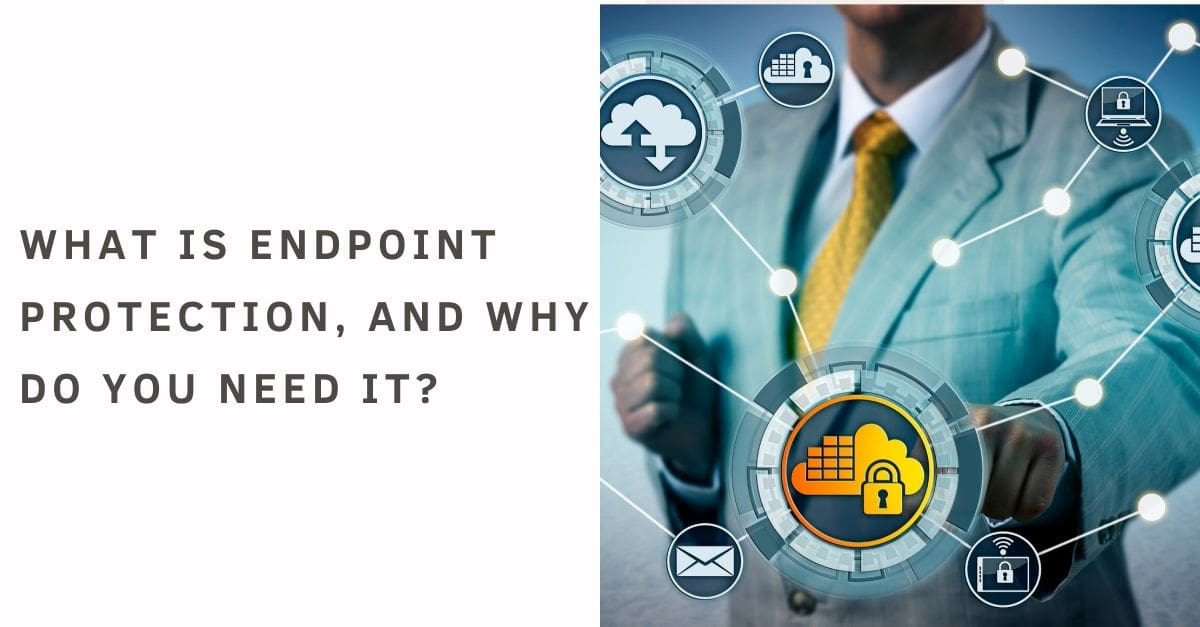Boosting a SMB on Network Security Services: A Complete Guide
Most small and medium-sized businesses feel pressure from cyber threats in this age of the digital revolution, which can cripple business operations, tarnish reputations and result in financial loss. Surprisingly, most SMBs underestimate the need for robust network security provider.
Therefore, in this blog, we will discuss the steps that are critically important for elevating SMB network security and give concrete tips, examples, and solutions for protecting your business.

Why It Is Important to Know About SMB Network Security
With the rapid digital transformation, many cybercriminals are marching towards Small and Medium Businesses. Most SMBs are less resourced and less knowledgeable than bigger organizations, which in some way translates to a lack of advanced security measures. A cyberattack can be brutal for an SMB, causing data breaches, loss of customer trust, and even the closure of a business.
Examples of Cyber Attempts on SMBs
Here are real-life examples that illustrate the gravity of a situation:
Ransomware Attack
Educational institutions are prime targets of ransomware attacks, which paralyze learning, expose sensitive student information, and put them under heavy financial pressure. These sorts of attacks highlight why more investments are needed in cybersecurity within the education sector.
Phishing Scam
One of the cases a retail SMB fell victim to a phishing attack that occurred when one of the employees clicked a URL that was part of the phishing email. The case ended with customers’ credit card details being fraudulently accessed, legal costs, and loss of business. These cases further emphasize a need for a comprehensive approach to the SMB network security.
Building a Strong Foundation: The SMB Network Security Checklist
Smaller companies need a place to start with a cyber security checklist for small to medium-sized businesses. A sturdy base is necessary if you want to defend your SMB against whatever cybercrime happens today. Here is a network security checklist:
Risk Assessment
Determine which assets are most important. For instance, customer information, financial records, or intellectual property. Estimate the threats and risks that are associated with the identified assets.
Establish a Cybersecurity Plan
Develop an extensive and detailed cybersecurity plan laying out policies, procedures, and protocols for the defense of your network. That includes guidelines on access control, protection of data through encryption, and how to respond to incidents.
Strong Passwords and Multi-Factor Authentication (MFA)
Ensure all employees have a strong password, and in cases where necessary, enforce the use of MFA for sensitive accounts. This will enhance security, and as a result, it will be harder for unauthorized persons to have access.
Up-to-Date Software and Systems
In software and operating systems, keep on applying the latest patches on the systems. Most cybercriminals are in search of those systems that are occasionally updated.
Regular Security Audits
Conduct periodic checks on your network to reveal any weaknesses or areas for improvement. This will result in a proactive security posture.
Data Backup
Back up your data regularly and ensure it is safe in some offsite locations. Then, if ransomware or a breach occurs, backups ensure your business recovers efficiently and swiftly.
Employee Training in Best Cyber Security Practices
Employees are usually the weakest link in IT security. Train them to identify phishing emails and avoid suspicious links to increase vigilance and security within the entire organization.
Integrate with a Network Security Provider
If your SMB lacks the human resources and in-house skills to manage network security, it is better to outsource it to a network security provider. Such expertise will help to provide customized solutions for securing the business.
Simple and Effective Cybersecurity Tips for SMBs
Setting up robust network security does not have to be complicated or expensive. Here are some useful cybersecurity tips for small and medium businesses:
Encrypt Sensitive Data
Encrypting is one of the best ways to secure data, as it is hard for a third party to access it. Through data at rest and data in transit encryption, you are guaranteed that even if the attackers got inside the network, they cannot read or misuse it.
Restricting Access to Critical Systems
No employee should be granted access to all areas of your network. Only give permissions if needed according to employees’ job descriptions. This helps to reduce internal threats and limit the losses from the accounts that have been breached.
Implement Firewalls and Anti-Malware Software
Firewalls protect against threats from the outside world, while anti-malware detects and deletes evil code. Ensure these are well-configured and updated regularly to ensure adequate protection is in place.
Monitor Network Activity
Monitor network activity constantly so that it is possible to distinguish deviations or attempts of unauthorized access. Configure alarms for certain activities, including several login attempts or large data transfers, so action can be taken in time to counter threats.
Secure Remote Access
This will become more important than ever as remote work becomes more common. Make your network safe for remote access by implementing Virtual Private Networks (VPN) and requiring strong authentication and secure software updates for the devices that will be used remotely.
Network Security Solutions for SMBs
To improve your security significantly, it is wise to invest in network security solutions designed for the unique needs of SMBs. Some of the best possible solutions include:
Managed IT Services
With managed IT services, SMBs get access to technical professionals who can do routine monitoring and threat detection, doffing incident response, and compliance. This means that one can leave all the matters concerning security in the hands of the security firms while he or she can deal with other aspects of the business.
Cloud Security Solutions
With more SMBs switching shifting operations to the cloud, protection for the cloud environment is necessary. Cloud security solutions protect data in the cloud, thus making the cloud environment safe from intrusion, breaches, and other lurking threats.
Endpoint Security
Endpoint protection ensures that devices like laptops, smartphones, and tablets are secured while they connect with your network system. In addition, such systems help prevent infections from malware, data breach incidents, and various other probable occurrences that may arise from security weaknesses at endpoints themselves.
Security Information and Event Management (SIEM)
SIEM solutions offer application and network hardware real-time analysis of the security alerts the products raise. SIEM is useful in the detection and response to threats before damage might be done by enabling aggregation of data from multiple sources for analysis.
Cyber Insurance
Cyber insurance, as its name implies, is not a security solution; it offers an insurance front in case of a cyber threat. It comprises liabilities including data compromise, legal defense, and business intermission, which will be comforting for SMBs.
The Role of Network Security Providers
Partnering with a network security provider becomes a different playing field for SMBs. You have the required skillsets and resources to help keep up with any emerging risks, ensuring that your network protection never goes down. It provides free protection, business disruption, and peace of mind for the SMB.
Advantages of Working with a Network Security Provider
Expertise
A network security provider has specialized knowledge and many years of experience managing complex security challenges. They can provide customized solutions based on your business’s requirements.
Proactive Monitoring
Providers monitor your network 24/7 so that any malicious activity that may be happening in your network will be immediately highlighted.
Compliance Support
Due to restrictions in the size of the company budgets and resources available, it can be difficult to meet the requirements of the industry. A network security provider can be of great assistance if your company is not conversant with the complexities of compliance with certain standards as far as the laws governing the provision of services are concerned.
Cost-Effectiveness
Hiring an in-house security team can be expensive, but partnering with a provider can help reduce this cost without affecting quality.
Why Choose Computer Solutions East as Your Network Security Provider?
Having the right partner makes all the difference in the security of your SMB. At Computer Solutions East (CSE), we appreciate a business of all sizes enough to know that you face different network security needs, and therefore, we offer you solutions which suit your needs.
Our team includes experienced cyber professionals who can collaborate with you regarding vulnerabilities, establish strong protective measures, and maintain relevant defenses moving forward against emerging threats.
Conclusion: Bring Your SMB’s Network Security to the Next Level Today with CSE
SMBs need to pay much attention to network security because threats are constantly adapting to modern society. Following the guidelines and recommendations given in this blog, you can improve the level of network protection in your SMB and prevent threats. Often, even if it is a basic action, it is important to take it at all, and it is even more important to take the first step now—to contact a provider of network security services.
At CSE, we can offer you tailored service and support. Not one size fits all. We will come to a stop to know your business and deliver services in a personalized way. This may range from setting up multi-factor authentication to securing remote access or delivering regular security audits to ensure no part of your network goes unsecure.
Be assured that you are in good hands when you let CSE take care of taking your business off. CSE will protect you, your data, and your systems, and, at its best, the security of the networks. Choose CSE and secure your business future.


